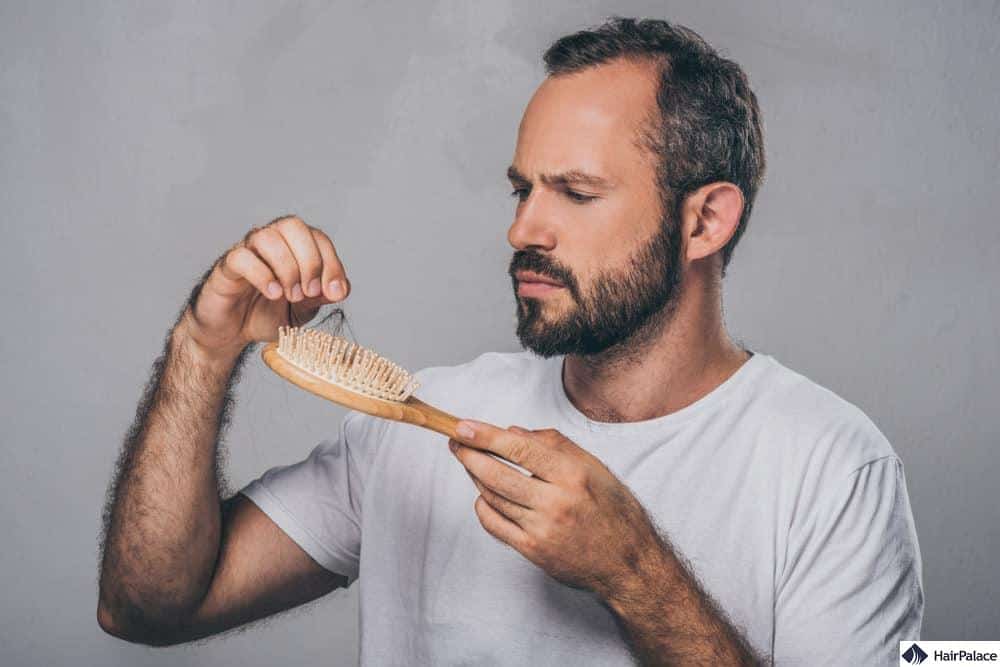Hair loss is one of the most common concerns faced by both men and women around the world. While it is a natural part of aging for many, it can also be influenced by genetics, stress, medical conditions, or even lifestyle choices. For many people, losing hair is more than just a cosmetic issue — it can affect self-confidence and overall well-being.
Fortunately, advancements in science and aesthetics have made it possible to manage hair loss in more effective and less invasive ways than ever before. Modern treatments now focus on stimulating natural hair growth, improving scalp health, and restoring confidence.
Why Hair Loss Happens
Before exploring solutions, it’s important to understand why hair loss occurs. Some of the most common causes include:
- Genetics: Male and female pattern baldness are hereditary conditions.
- Hormonal changes: Pregnancy, menopause, or thyroid problems can trigger shedding.
- Stress: Both emotional and physical stress can lead to temporary hair loss.
- Poor diet: Deficiencies in protein, iron, or vitamins weaken hair follicles.
- Scalp health: Conditions like dandruff, fungal infections, or oil buildup can affect growth.
Understanding the root cause is the first step in choosing the right treatment approach.
Traditional Approaches to Hair Loss
For years, people relied on topical treatments like oils, shampoos, or herbal remedies. While some provided mild improvement, results were often slow or inconsistent. Medications such as Minoxidil or Finasteride have also been used, though they may come with side effects and require long-term use.
Hair transplant surgery has been another option, but it involves downtime, higher costs, and is not suitable for everyone.
The Rise of Non-Invasive Treatments
In recent years, aesthetic medicine has introduced innovative, non-invasive treatments that focus on supporting the scalp and follicles in natural ways. These options provide an effective middle ground between simple home remedies and surgical procedures.
- Platelet-Rich Plasma (PRP) Therapy
PRP uses a patient’s own blood, processed to concentrate growth factors, which is then injected into the scalp. This helps rejuvenate dormant follicles and improve hair density.
- Low-Level Laser Therapy (LLLT)
Laser devices stimulate scalp circulation and follicle activity, encouraging stronger and healthier growth.
- Scalp Treatments
Medical-grade scalp treatments focus on deep cleansing, exfoliation, and nourishment. These improve overall scalp health, creating the right environment for new hair to thrive.
- Nutritional Support
Supplements designed to provide essential vitamins and minerals for hair health are often used alongside professional treatments to strengthen results.
- Advanced Hair Growth Therapies
Many aesthetic clinics are introducing specialized programs that combine multiple approaches for more comprehensive results. For instance, treatments like V Aesthetics Hair Grow are designed to target both scalp health and follicle stimulation, giving clients a non-invasive solution tailored to their needs.
Benefits of Modern Hair Growth Treatments
These advanced treatments are gaining popularity because they offer several key advantages:
- Non-invasive: No surgery, no long recovery periods.
- Natural stimulation: Treatments encourage the body’s own ability to grow hair.
- Safe and effective: With qualified practitioners, risks are minimal.
- Customizable: Solutions can be tailored to different hair types, conditions, and levels of loss.
- Boost in confidence: Restoring hair often restores self-esteem and comfort in social settings.
What to Consider Before Starting Treatment
If you’re exploring modern hair growth solutions, here are some points to keep in mind:
- Consultation first: Always begin with a professional consultation to identify the root cause of hair loss.
- Consistency is key: Most treatments require multiple sessions over weeks or months for the best results.
- Lifestyle support: A healthy diet, stress management, and proper hair care all contribute to better outcomes.
- Set realistic expectations: Results vary depending on genetics, age, and the extent of hair loss.
The Future of Hair Restoration
With technology advancing rapidly, the future of hair growth treatments looks promising. Research is moving toward regenerative medicine, combining stem cell science, growth factors, and advanced devices to achieve even more effective outcomes.
We can also expect greater personalization, where treatments are customized not only to the individual’s scalp but also to their genetic profile. This ensures more targeted and predictable results.
Final Thoughts
Hair loss can be a difficult challenge, but today’s aesthetic solutions offer more hope than ever. Modern treatments are designed to be safe, effective, and convenient, giving people a way to regain not only their hair but also their confidence.
From scalp therapies and PRP to advanced non-invasive programs, the options available today provide real results without the need for surgery. For anyone looking to take control of hair loss, exploring these treatments is a step toward healthier, fuller, and more resilient hair.




